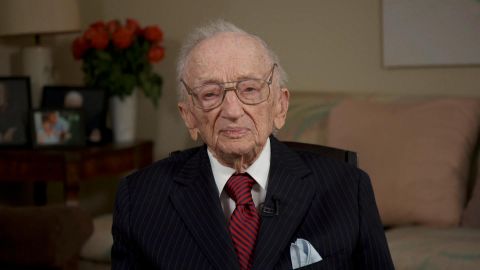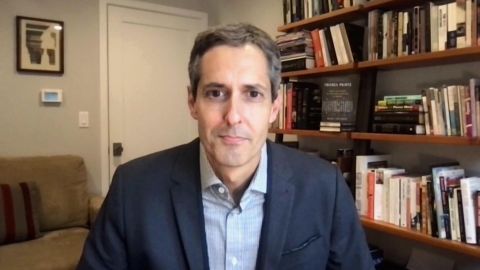Read Transcript EXPAND
CHRISTIANE AMANPOUR: Mr. Ferencz, when you see what’s happening in Ukraine at the moment, we also have found ourselves scenes of bodies summarily executed, just the worst horrors as the Russian forces retreat from around Kyiv. What do you think, all these years later, given what you hoped would be the case, in holding that kind of crime accountable back in the Holocaust?
BENJAMIN FERENCZ, NUREMBERG TRIALS PROSECUTOR: I am heartbroken. I have spent the rest of my life after the Holocaust trying to create a world of peace and harmony for everyone, regardless of their race or creed. And we have been making some progress in that direction by creating new international criminal courts, by teaching humanitarian law in universities. But to see it happening again, very similar, kids being shot, homes being blown up, it pains me to see that we have learned so little from the Holocaust and from the trials. And I hope that we will come to our senses soon. I am urging a cease-fire immediately to all the troops engaged in these combats, and use that cease-fire time to promise them a conference of all the leading participants in the next couple of weeks to find a peaceable solution, as was anticipated when the United Nations Charter was drawn up. And the most important quote that I have for you is a quote of my commanding general during the war, commander of all of the allied forces, later general — General Dwight D. Eisenhower, later president of the United States. As president, he was leaving. He said, in a very real sense, we can no longer rely on force. If civilization is to survive, it must turn to the rule of law. Those have been my guiding lights, Republican President Dwight D. Eisenhower, the wisdom that he passed on to the rest of the world, and which, unfortunately, is being disregarded today.
About This Episode EXPAND
Benjamin Ferencz is the last surviving prosecutor from the Nuremberg trials. He speaks about his experience, and his thoughts about the war in Ukraine. Journalist Mark Follman has spent the past decade researching gun violence in America. His new book “Trigger Points” details how leaders could go beyond thoughts and prayers and actually address the problem.
LEARN MORE

